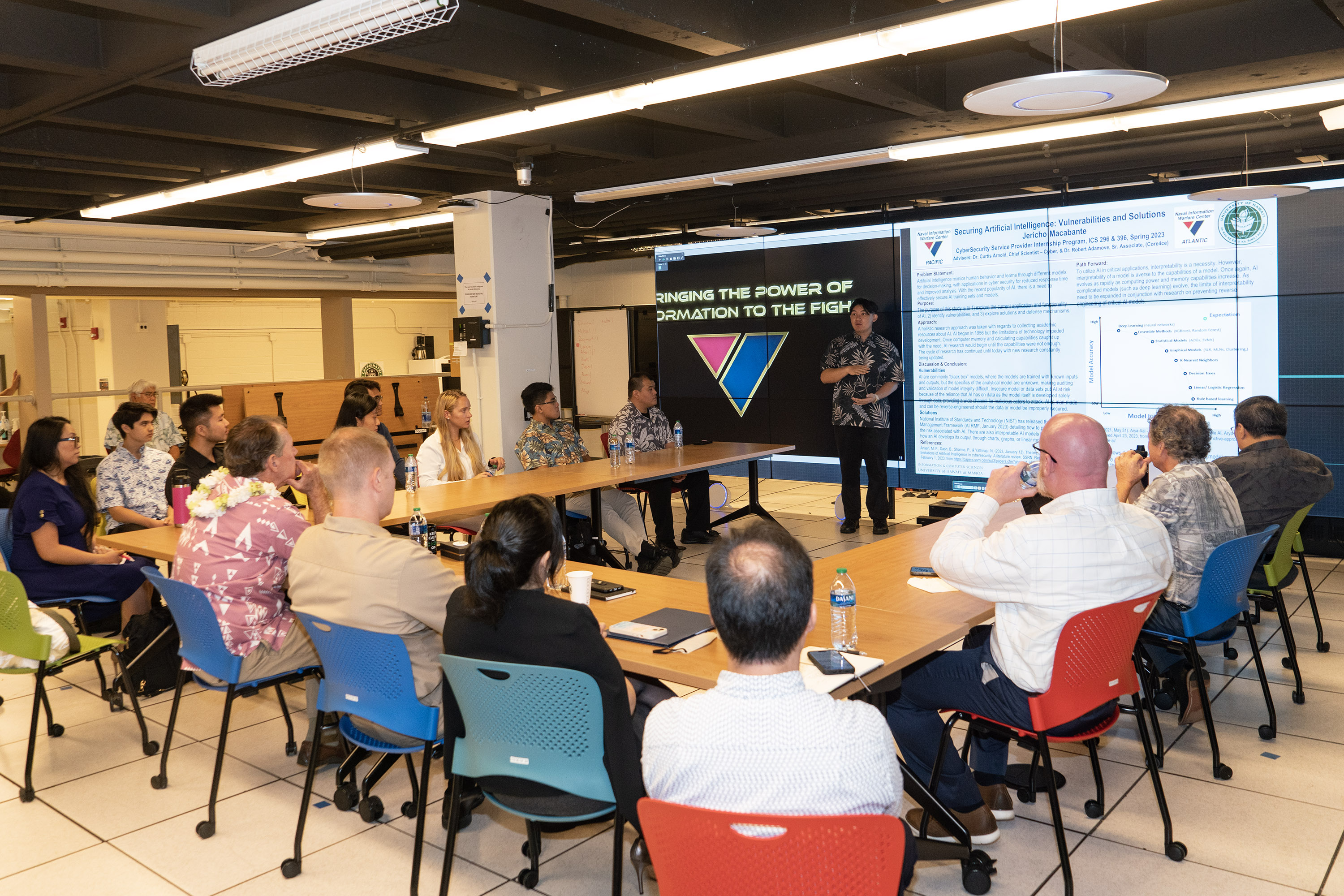NIWC Cyber Security Research Internship
Agency Overview
The Naval Information Warfare Center Pacific is dedicated to developing and deploying modern technologies to help the U.S. military as well as its allies. NIWC strives for constant improvement and integration of relevant technologies.
Internship Overview: Cyber Security Research on Artificial Intelligence

The internship was a collaboration between UH Manoa and NIWC where we were guided by the Faculty and NIWC Professionals along a rigorous research path. During my internship, I had the opportunity to delve into the fascinating field of cyber security, focusing specifically on the intersection of artificial intelligence (AI) and safeguarding digital systems. This overview showcases my research and contributions to this dynamic and rapidly evolving field.
Objective
The primary objective of my internship was to explore the potential vulnerabilities and security challenges associated with the integration of artificial intelligence technologies into various digital systems. By conducting comprehensive research and analysis, I aimed to identify potential risks and develop effective strategies to enhance the security posture of AI-driven applications.
Research Methodology
-
Literature Review: I conducted an extensive review of academic papers, industry reports, and cybersecurity frameworks related to AI and AI security. This allowed me to gain a comprehensive understanding of the applications of AI systems within cyber security and existing threats, mitigation techniques, and best practices in securing AI systems.
-
Identification of Limitations: As part of my research methodology, I critically analyzed the limitations and weaknesses of existing research. This process highlighted areas that required additional attention and provided a foundation for future research directions.
-
Security Framework Development: Based on the insights gained from the identification of limitations, I developed a comprehensive security framework specifically tailored for AI applications. This framework encompassed pre-emptive measures, including secure model training, data validation techniques, and robust model evaluation, to mitigate potential threats.
-
Practical Recommendations: Based on my research findings and analysis, I formulated practical recommendations for enhancing the security of AI systems. These recommendations encompassed technical measures, best practices, and policy considerations, helping organizations and stakeholders navigate the complexities of AI security.
Conclusion:
Through my internship, I employed a rigorous research methodology that involved cross-validating research papers and industry reports, identifying gaps, and expanding on existing knowledge. This approach allowed me to contribute to the field of AI security by generating new insights, addressing research gaps, and providing practical recommendations. The impact of my research methodology extends beyond the internship, as it helps shape the future direction of AI security research and contributes to the development of robust cybersecurity practices in the face of evolving threats.